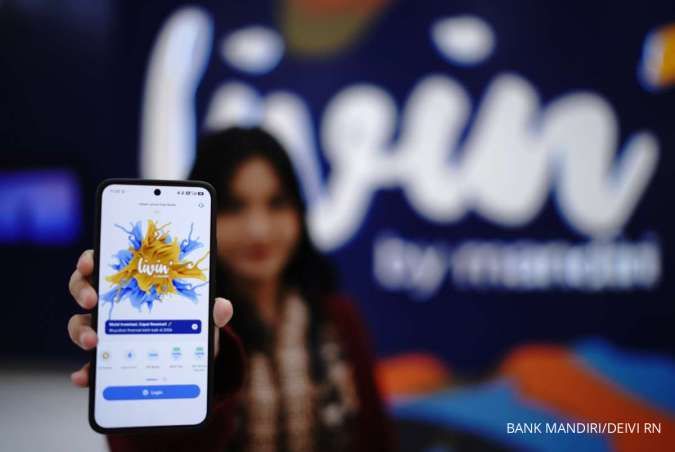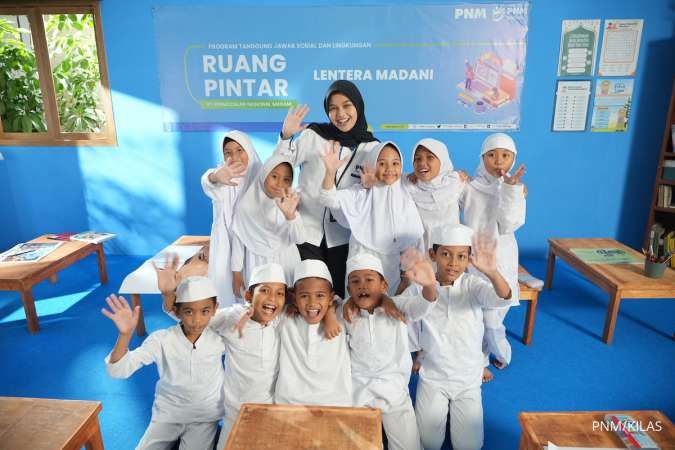JAKARTA. Like many police generals, the candidate for the next top cop, Comr. Gen. Badrodin Haiti, likes to keep a comfortable and spacious home and his house in Jagakarsa, on the outskirts of South Jakarta, certainly fits the bill. Built on more than 1,900 square meters of land, the two-story house, which has a sizable garden and a swimming pool, certainly gives Badrodin more than enough comfort so that he only infrequently stays at his official residence on Jl. Panglima Polim in South Jakarta. It was at this private residence that 30 lawmakers from House of Representatives Commission III overseeing legal affairs visited Badrodin on Wednesday to look into his personal lifestyle before grilling him in a confirmation hearing on Thursday.
After the informal meeting, Commission III chairman Aziz Syamsuddin said the lawmakers got interesting details about Badrodin’s life from his wife and two sons, one a police officer and the other a pharmacy student at the University of Indonesia (UI). “We came to meet with [Badrodin’s] family and heard many interesting things about his personal life and all 10 factions expressed their concerns during the meeting. We will hear the rest of what he has to say at the confirmation hearing tomorrow [Thursday] morning,” the Golkar Party lawmaker said. One of the personal stories was that of Fakhri Subhana Haiti, Badrodin’s youngest son, who said he wanted to study pharmacy after his mother, Tejaningsih Haiti, was diagnosed with Stevens-Johnson syndrome in 2008. Badrodin, dressed in a yellow and brown batik shirt, said he appreciated the visit and hoped that his confirmation would run smoothly. “I have already made sufficient preparations on the details of my plan [as police chief] for the confirmation hearing,” said Badrodin, whose current take-home pay amounts to less than Rp 25 million (US$1,930) a month. President Joko “Jokowi” Widodo nominated Badrodin after his first pick for the job, Comr. Gen. Budi Gunawan, was deemed unfit to serve in the position as he was named a suspect by the Corruption Eradication Commission (KPK) in a graft case. Although the South Jakarta District Court ruled in a pretrial hearing that the KPK had made an erroneous decision in naming him a suspect, Jokowi declined to proceed with the nomination of Budi and called on the House to proceed with Badrodin’s nomination. Badrodin’s nomination is not without controversy. Leaked data from the Financial Transaction Reports and Analysis Centre (PPATK) said that Badrodin was among 23 police generals who kept suspiciously inflated bank balances. It was reported in 2010 that Badrodin owned an insurance policy worth Rp 1.1 billion ($84,995) which was paid for by a third party. Between January 2004 and July 2005, Badrodin allegedly received money transfers of Rp 50 million per month and his bank account accepted transfers ranging from Rp 120 million to Rp 343 million. An internal investigation conducted by the National Police headquarters claimed that 17 out of 23 accounts, including those of Badrodin and Budi, were clean. According to a wealth report submitted by Badrodin to the KPK last year, he claimed to have a total wealth of Rp 8.2 billion and $4,000.
Meanwhile his wealth report submitted in 2008 revealed that he claimed to have a total of Rp 2.9 billion and $4,000. Human rights activists had previously accused Badrodin of committing human rights violations during his tenure as the Central Sulawesi Police chief, when he ordered an antiterrorist raid in Tanah Runtuh, Poso, Central Sulawesi, in 2007 that left 17 people dead. In an interview with The Jakarta Post after the lawmakers’ visit, Badrodin acknowledged that public trust in the police force was at one of the lowest points in the country’s history and that his first priority as National Police chief would be to improve the quality of police personnel. “We can improve the quality first by more actively recruiting candidates because we have been very passive when it comes to recruitment. We have to go to schools more and actively motivate young people to join the force,” he told the Post. (Fedina S. Sundaryani)

